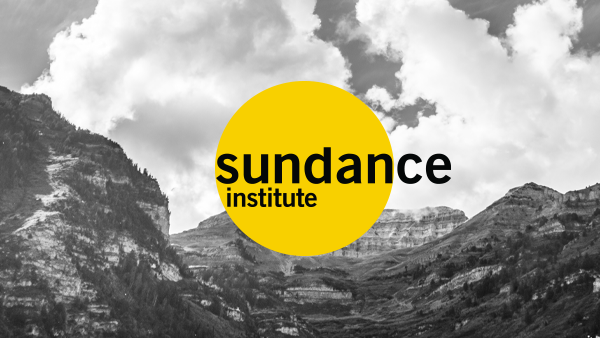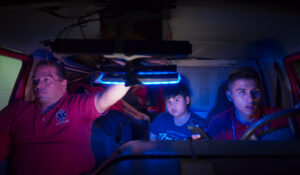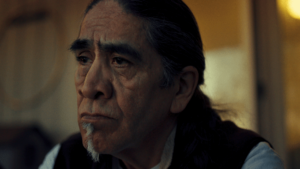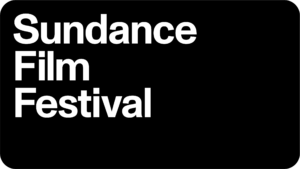Katie Metcalfe, Shorts Programmer
The focus of the fourth Sundance ShortsLab to date, held at the Cinefamily @ The Silent Movie Theatre in Los Angeles on Saturday, August 6, was the craft of comedic short filmmaking and exhibition. Over the course of the day-long event, writers, directors, actors, and distributors dissected the art of short form storytelling.
Comedy ShortsLab: LA began with a discussion around the discovery and development of the comedic voice moderated by Emmy-nominated comedy writer Scott Aukerman and featuring Julie Delpy (2 Days in Paris), Ruben Fleischer (Zombieland), and Mike White (Year of the Dog). White kicked off the discussion by explaining the difference between joke-based comedy and character-based comedy, stating that he gravitated towards the latter. “Chuck and Buck and School of Rock are certainly different films, especially in regards to commercial success, however, ultimately they are both character-based stories,” he said. The group discussed the value of collaborative work and the role of on-set improvisation. Director Ruben Fleischer explained how he uses the script as a starting point, allowing his actors to improvise and evolve the jokes over the course of filming. Delpy echoed this sentiment by stressing the importance of an actor feeling comfortable with the jokes, and thus confident enough to truly own them. The discussion then turned to the general importance of passion, dedication, and hard work. White put it best when he spoke of the drive and commitment that every filmmaker must sustain. “There are no shortcuts. You just have to make stuff and learn from making it. If you want to write, write. If you want to direct, direct. You can’t just wait around, hoping something will happen. You have to make it happen yourself.”

Lake Bell (Children’s Hospital) speaking at ShortsLab: LA. Photo by Jonathan Leibson.
A recurring panel throughout the day, Make ‘Em Laugh put a spotlight on three comedic short filmmaking groups who have developed loyal fan bases with their distinctive work. The first was internet sketch comedy group Derrick Comedy. DC Pierson explained that the team works collaboratively on everything they create: “We don’t decide anything by democracy. We all have to agree.” The group described how they are constantly bouncing ideas off each other and using fast humor. Like the panel before them, they also discussed how keeping the jokes fresh during the editing process can be tough: “It’s a muscle you need to develop, so you know when to react.”
The second Make ‘Em Laugh spotlight focused on Drunk History and Derek and Simon creator Derek Waters, who offered solid advice on how to find your audience. Waters touted the importance of creating original work and suggested that filmmakers identify what inspires them so that they don’t just emulate something else. He said the best and most important question to ask yourself is: “Do you love it?” The third and final Make ‘Em Laugh session featured Festival veterans the Zellner Brothers, who with a dozen short films under their belt, highlighted the importance of perseverance. They explained how even though some of their films have been more well-received than others, that has not stopped them from making the films that they want to make. They described their method of playing it straight and letting the absurd elements emerge on their own. “Shorts are really exciting because the stakes aren’t too high, so you can really experiment with what’s funny.”
The Internet provides a built-in audience at every filmmaker’s disposal, and who better to discuss the art of creating hit comedy online than Funny or Die. The creative, production, and marketing team from the comedy video website joined us to discuss their guerilla-style beginnings and their current output of 30-35 short films a month. The team described how there isn’t really a mantra for the organization, but that being topical has always been important, and having a celebrity involved never hurts. “We sell out! We absolutely make videos for the hits!,” the team joked. When asked by an audience member what the most important elements of creating hit comedy online were, the team gave a clear and concise answer: “1) Be short – 3 minutes or less, 2) Be funny, 3) Keep the medium in mind (the Internet screen is small, so close-ups are better than sweeping shots), 4) Have a point of view, and 5) Don’t be precious. Trust the laughs.”

Scott Aukerman and Julie Delpy on a panel at ShortsLab: LA. Photo by Jonathan Leibson.
The next panel, Performance Enhancement, was a lively conversation between actors Bobcat Goldthwait (World’s Greatest Dad), Lake Bell (Children’s Hospital), Danny Pudi (Community), and Romany Malco (The 40-Year-Old Virgin), moderated by director Miguel Arteta (Cedar Rapids). In a very candid conversation featuring many personal anecdotes, the general consensus was that the best environment for comedy is one in which the director is genuine and protective of the actors. The group emphasized the importance of working together, rather than adopting the ‘us versus them’ mentality that sometimes emerges between actors and directors. Goldthwait admitted, “Sometimes you let the talent do what they want, even if you’re not going to use it, just to develop that trust.” Malco then chimed in with his personal outlook: “What’s most important to me is getting the intention. Let’s get the words out of the way.” And as a vital piece of advice to actors in the audience, Lake Bell boldly stated that “comedy is about bombing and not being afraid to do so,” something Julie Delpy also mentioned earlier in the day. The group agreed that the most effective comedy chemistry is created through rehearsal, which Malco described as bringing about “camaraderie and accountability and foresight.” Although, if you do have the luxury of rehearsal time, it’s important to use it to develop improvisation and chemistry rather than to explicitly study the script. Our panelists agreed that rehearsal can leave you in danger of trying to “recreate the moment” once the cameras are rolling.
Lastly, producer, director, and screenwriter Troy Miller (Flight of the Conchords, Parks and Recreation) and his team shared some of their work, most notably those that have opened the Oscar telecast. They advised filmmakers to not let technical elements such as lighting and editing get in the way of the story. Echoing much of what had been said on the first panel of the day, Miller also placed emphasis on the value of “getting feedback from people around you that you respect,” but to always make sure the story comes first.
ShortsLab: LA wrapped up a successful summer series with a packed crowd and a highly entertaining set of panelists. Read more about our Chicago and New York ShortsLabs held earlier this year. Thanks to all who participated.




